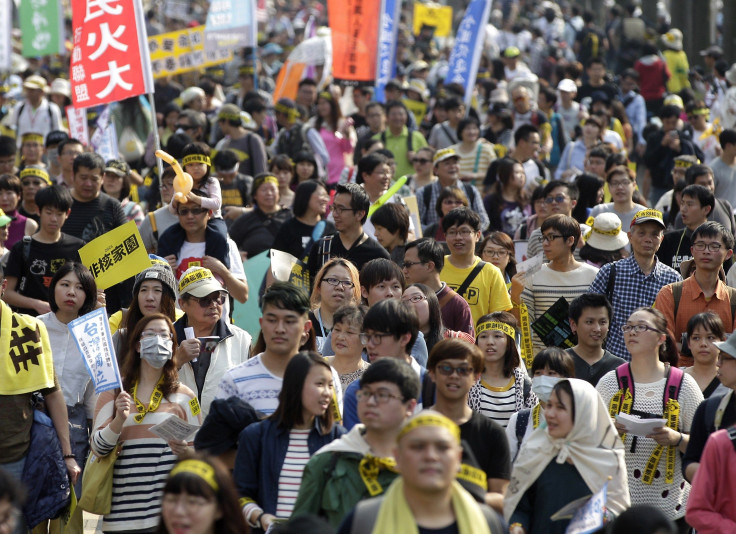Taiwan's Anti-Nuclear Rallies Witness 45,000 Protesters

Thousands of people gathered on the streets of Taiwan on Saturday to protest against the island’s use of nuclear energy and its plan to ship nuclear waste abroad. The protests come just days after Japan marked the fourth anniversary of its Fukushima power plant nuclear disaster.
Protesters held placards, which read: "Goodbye to nuclear energy," and "We don't need nuclear power" during the demonstrations. The rally in Taipei attracted about 30,000 protesters, while two other demonstrations on the island saw a combined turnout of 15,000 people, according to the Agence France-Presse (AFP). Last year, Taiwanese authorities were forced to seal off a nearly complete power plant, which was scheduled to open in 2015. A referendum on its future is pending. However, activists, who have also called for the decommissioning of two older plants, have demanded that the government scrap off the plant altogether.
"We urge the government to reform its energy policy and focus on green energy and saving energy," Tsui Shu-hsin, one of the organizers of the rally, said, according to the AFP: adding: "Politicians should listen to the voices of the people ... so Taiwan can become nuclear-free."
The Taiwanese government has argued that nuclear energy contributes to about 20 percent of the island’s electricity and the country risks running out of energy if it stops using nuclear power. However, protesters drew comparisons with Japan’s 2011 disaster, and said that the plants should not be operated.
"Taiwan is earthquake-prone like Japan and it is smaller so nuclear facilities are much closer to our homes," Wu Bor-chyun, a banker who was living in Japan during the 2011 nuclear accident, said, according to the AFP, adding: "Nuclear power is not safe and it is very costly. Taiwan should heed the lessons in Japan."
The rally's organizers also collected signatures from protesters in an effort to stop state-run Taiwan Power Co. from processing its nuclear waste abroad. Protesters said the government's plan was aimed at extending the operations of two plants, which were approaching capacity.
© Copyright IBTimes 2024. All rights reserved.












